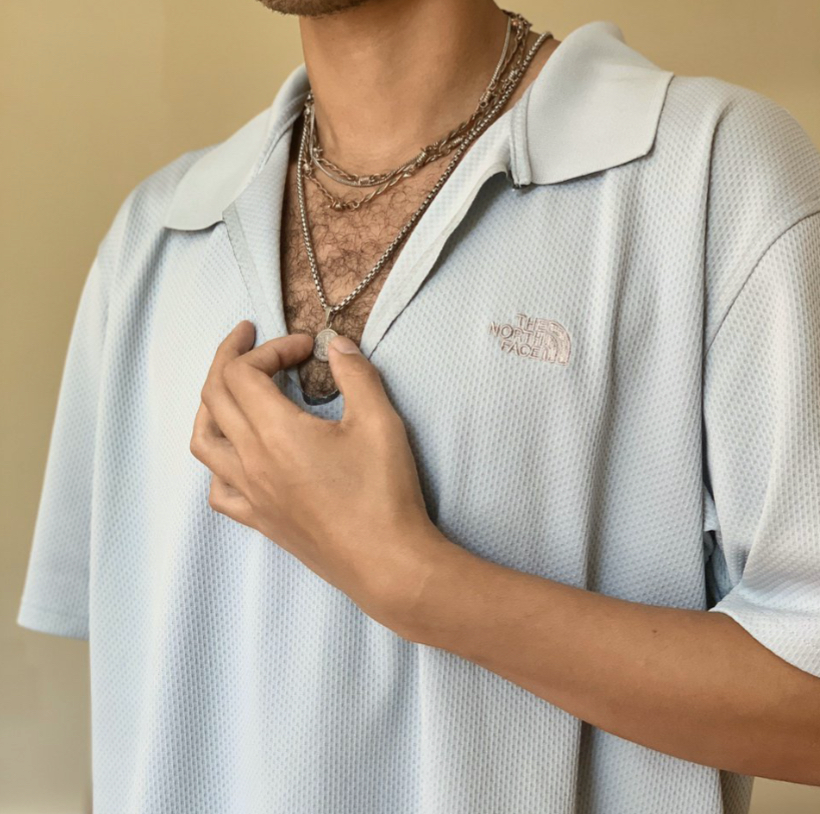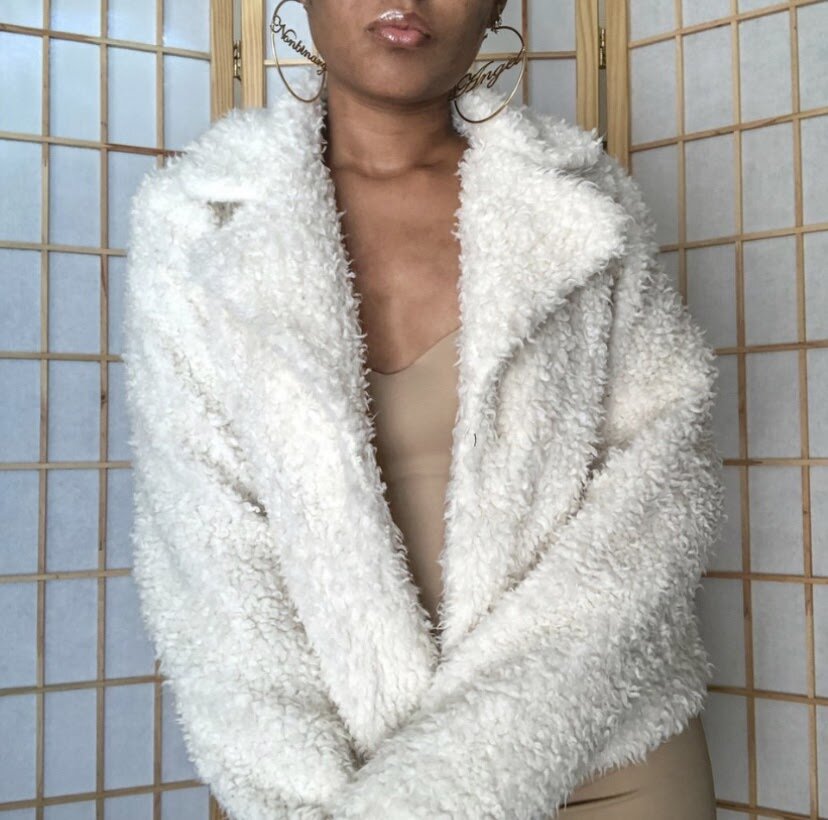#blackondepop: Fashion’s Performative Activism and Where To Go From Here
Graphic by Quynh-Nhi Tran. Images via Depop.
After the longest spring hibernation of all time™️, this summer was hot and humid, and the air was thick with condensation and performative activism. You could sense it from a mile away: a big dark cloud that you thought might pour down buckets of rain and be a reprieve from the heat, but really just blackened the sky and ruined your day.
My radar has been more tuned-in to systems of theatrical advocacy since Black Lives Matter protests began their resurgence in May. Companies pumping out diversity in their advertising while systematically paying their Black employees less isn’t new –– virtue signaling is as American as apple pie. But there’s something especially manipulative about major institutions simultaneously waking from their slumber and posting their solidarity with the movement as if they had always been supportive.
The fashion community, with its background in creating pageantry, is no exception. It’s hard not to roll your eyes at the hypocrisy of Gucci posting an aesthetically pleasing anti-racism quote a little over a year after Twitter backlash forced them to remove the infamous blackface sweater from their store. Anthropologie, too, posted a Maya Angelou quote while ignoring claims of their retailers using secret code names to profile POC shoppers. Quotes are well and good, but I’m skeptical that their meaning will take hold beyond the world of Instagram; it’s no coincidence that it was social media that exposed both companies, and social media where they tried to rebuild themselves.
Around the same time as brands were posting BLM content, the online thrift giant Depop released a statement committing to improve Black representation on the app after they were also called out by users. They pledged to donate $20,000 to the NAACP and to work with sellers to donate $10,000 more to Black and Pink, The Okra Project, and the LGBTQ Freedom Fund.
Depop also announced the hiring of their first diversity and inclusion leader, Chinny Okolidoh, whom they brought on “to create more opportunities for action, education and conversation around diversity, inclusion, and equity.” But with 0% of the executive team and only 11% of the total employees being Black, it’s likely that her work will be heavily internal.
To Depop’s credit, they have continued to update users on their progress to center Black people on the app and in the company. They set specific hiring targets for each level of their company, aiming to increase Black representation on the Board and in the entire staff to 10% and 15% respectively, and boosted the coverage of Black sellers on the Explore page and their social media.
In October, the app launched the two-part #blackondepop campaign for UK Black History Month. Working with Black creatives including research from On Road, creative direction from paq.works, and production from Out Since Tuesday, Depop released a video featuring three Black sellers from the UK: Rumbi (@pattonstudio), Jordan (@joinjordswardrobe) and Feya (@bratlanice). The film, while a celebration of Blackness and creativity, was more or less a promotional video asking the sellers about their favorite parts of Depop.
Still from “Black on Depop.” Image via YouTube.
The second piece of the campaign involves the use of the hashtag to spotlight the Black community in-app. According to Depop, if a user searches #blackondepop, they can discover Black-owned shops and consciously support their listings. Yet Black sellers themselves have noticed little increase in their shops’ visibility from the tag.
Chris Rivera (@cxrpapi), a student at University of Tennessee, Knoxville studying finance, said over direct message that he didn’t notice any extra traction or sales after tagging several of his listings with #blackondepop. Although Rivera acknowledges Depop for highlighting Black sellers, he added that the hashtag seems performative and does little for the daily growth of his shop. “As with most movements, a hashtag tends to be just that… a hashtag,” he writes.
Rivera says that #blackondepop is a start, but there is more that Depop can be doing for its Black sellers. “Awareness is a great thing, but putting your money where your mouth is is more my style –– therefore I would prefer for Depop to donate to Black Depop sellers, have an all Black Depop event to show support (although I understand due to the pandemic that would be difficult), or best of all donate to Black organizations,” he writes.
Janine Ann Belcon, who goes by their seller name Tamiko at their shop @marikomichael, said over direct message that they also noticed little extra exposure from the #blackondepop tag. Instead, Belcon only observed a difference in sales when Depop made them a suggested user and featured their items on the Explore page. Belcon explained the tag is mainly helpful for Black and other POC users to find Black-owned shops, but that there are more tangible ways the app can support Black sellers.
“I personally think that if Depop wanted to see Black Depop sellers increase business they should make it a point to make a permanent black suggested users page AND feature even more POC (disproportionate to white sellers) in all other suggested user categories,” they write.
Is it fair to say that Depop has done too little too late? In comparison to many large fashion companies, Depop has done a lot in its commitment to the Black community. But if we are to hold companies only to the standards of others, we fail to push them to where they must be to actually change for the better.
Good news: Depop has emphasized their willingness to listen to the Black seller community. And the Black seller community is asking for direct monetary support and a permanent page of only Black suggested users, among other things. Now, it is up to Depop to decide if it wants to escape from fashion’s bubble of performative activism, actually do work that transcends the Instagram quote storm and build an app centered on true equity.
If you’re looking to shop Black-owned and want some really unique thrifts, check out @cxrpapi, @marikomichael and other shops under the tag #blackondepop.






